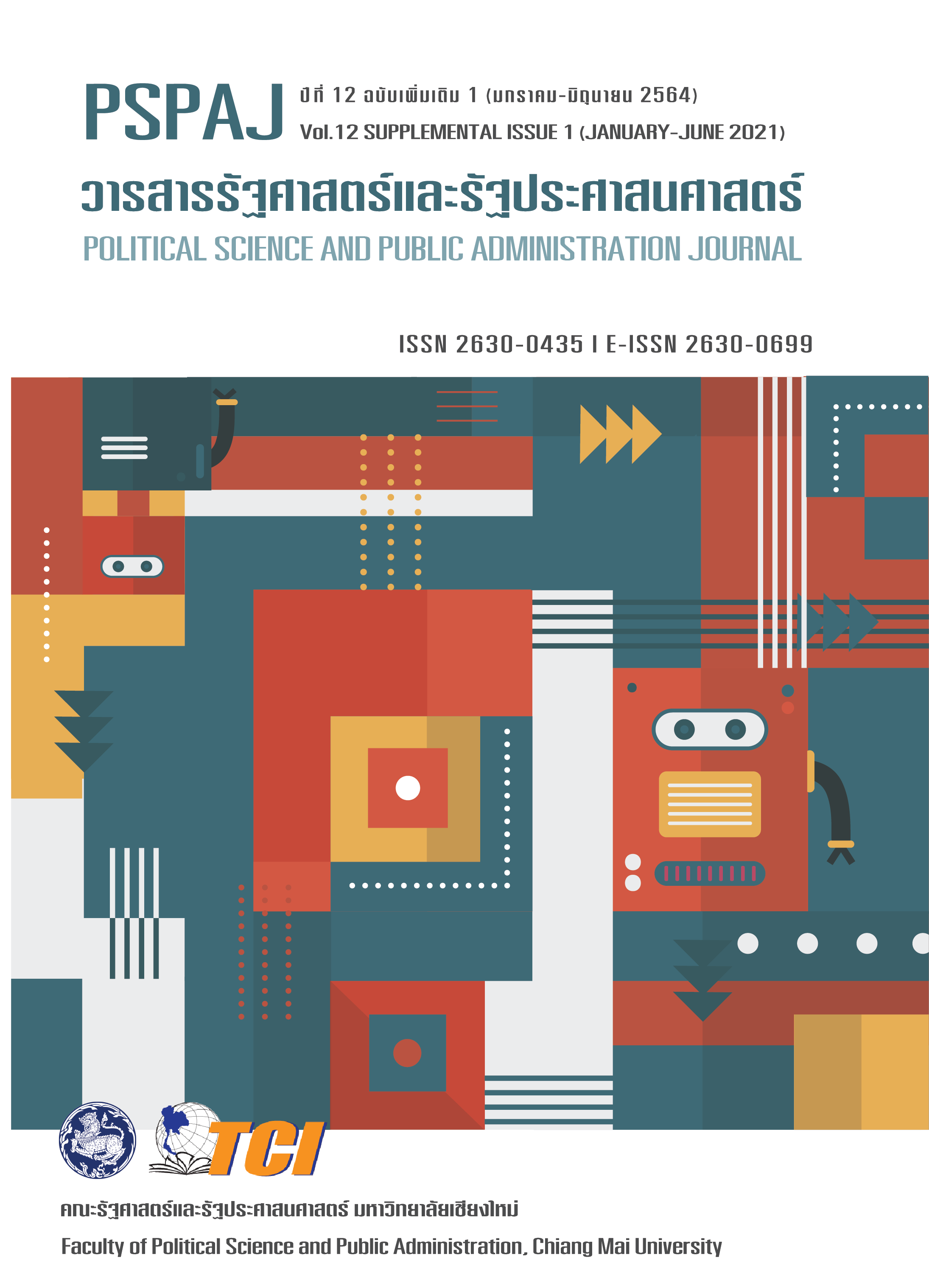Death Penalty in the United Nations Guideline on the Most Serious Crime
Main Article Content
Abstract
The purpose of this qualitative research was to study the guidelines of Thai society concerning the death penalty. Using in-depth interviews with policy-makers, policy leaders in action, civil society groups and academic groups, the study found that the United Nations death penalty regulations and guidelines for the most serious crimes comprise the international standards, even though each country may have a different social and cultural context. In the case of Thailand, punishing innocents can result from errors in criminal prosecution. Considering the death penalty as judicial punishment specifically in cases of premeditated murder, the death penalty could be the most appropriate guideline since it involves loss of life. Additionally, the death penalty could be suspended in practice. Regarding Thai culture and society, there are several penalties that could replace capital punishment for the most severe offenses, yet they do not correspond to the United Nation guidelines. Adding more imprisonment in some cases, which are supposed to be solely sentenced to death can be an alternative. Likewise, long-term imprisonment with fixed time for acquittal and life imprisonment without mitigation is a possibility. Lastly, enabling opportunities to execute prisoners creates value to society. These are potentially generated by adjusting the United Nations guidelines for the death penalty in cases involving the most serious crimes in order to be consistent and appropriate in Thailand.
Downloads
Article Details
- เนื้อหาและข้อมูลที่ลงตีพิมพ์ในวารสารรัฐศาสตร์และรัฐประศาสนศาสตร์ถือเป็นข้อคิดเห็นและความรับผิดชอบของผู้เขียนบทความโดยตรง ซึ่งกองบรรณาธิการวารสารรัฐศาสตร์และรัฐประศาสนศาสตร์ ไม่จำเป็นต้องเห็นด้วย หรือร่วมรับผิดชอบใดๆ
- บทความและข้อมูล ที่ได้รับการตีพิมพ์ในวารสารรัฐศาสตร์และรัฐประศาสนศาสตร์ ถือเป็นลิขสิทธิ์ของวารสาร หากบุคคลหรือหน่วยงานใดต้องการนำข้อมูลไปใช้ประโยชน์ในทางวิชาการ ขอให้อ้างอิงแหล่งที่มาด้วย
References
กรมราชทัณฑ์. (2563). สถิติผู้ต้องขังทั่วประเทศ. สืบค้นเมื่อ 3 สิงหาคม 2563, จาก www.correct.go.th
คณิต ณ นคร. (2547). กฎหมายอาญาภาคทั่วไป. กรุงเทพฯ. สำนักพิมพ์วิญญูชน จำกัด.
ณัฐพร นครอินทร์. (2553). วิวัฒนาการของกระบวนการลงโทษประหารชีวิตในประเทศไทย และปัจจัยที่ส่งผลต่อความเปลี่ยนแปลง. (นิติศาสตร์มหาบัณฑิต), จุฬาลงกรณ์มหาวิทยาลัย.
รวีภัทร์ ฉัตรไชยเดช. (2562). การรื้อฟื้นคดีอาญาขึ้นพิจารณาใหม่: ศึกษากรณีเงื่อนไขในการยื่นคำร้องและผู้มีสิทธิร้องขอให้รื้อฟื้นคดี. (วิทยานิพนธ์ปริญญามหาบัณฑิต), คณะนิติศาสตร์ มหาวิทยาลัยศรีปทุม.
วิชัย ศรีรัตน์. (2560). การศึกษาความเป็นไปได้ในการเข้าเป็นภาคีพิธีสารเลือกรับฉบับที่สองของกติการะหว่างประเทศว่าด้วยสิทธิพลเมืองและสิทธิทางการเมืองเพื่อการยกเลิกโทษประหารชีวิต. วารสารนิติศาสตร์ มหาวิทยาลัยธรรมศาสตร์, 46(3), 749-769.
ศุภชัย ปานพรหมมาศ. (2560). ความผิดเกี่ยวกับยาเสพติด: ศึกษากรณีการยกเลิกโทษประหารชีวิต. วารสารบัณฑิตวิทยาลัย มหาวิทยาลัยธุรกิจบัณฑิตย์, 5(3), 603-616.
สมภาร พรมทา. (2548). พุทธศาสนากับโทษประหารชีวิต. วารสารพุทธศาสน์ศึกษา จุฬาลงกรณ์มหาวิทยาลัย, 12(3), 5-116
สุมนทิพย์ จิตสว่าง. (2561). โทษประหารชีวิต. กรุงเทพฯ. โรงพิมพ์แห่งจุฬาลงกรณ์มหาวิทยาลัย.
สุรศักดิ์ ลิขสิทธิ์วัฒนกุล, และปกป้อง ศรีสนิท. (2560). การศึกษาเพื่อพัฒนาแนวทางการลงโทษ: หลักการลงโทษที่ได้สัดส่วนกรณีคดียาเสพติดให้โทษ. วารสารนิติศาสตร์ มหาวิทยาลัยธรรมศาสตร์, 46(4), 903-929.
อดิศักดิ์ นุชมี. (2561). การยกเลิกอาญาประหารชีวิตกับแนวคิดอิสลาม. วารสารมนุษยศาสตร์และสังคมศาสตร์ มหาวิทยาลัยรังสิต, 13(2), 53-67.
International Commission against the Death Penalty. (2013). The Death Penalty and the “most serious crime” A Country-by-country Overview of Death Penalty in Law and Practice in Retentionist States. Retrieved May 13, 2020, from http://www.icomdp.org
Netter, B. (2005). Avoiding the Shameful Backlash: Social Repercussions for the Increased Use of Alternative Sanctions. Journal of Criminal Law and Criminology, 96(4), 187-216.
United Nations. (2020). United Nations Treaty Collection, State of Ratification. Retrieved May 25, 2020, from https://treaties.un.org/Pages/ViewDetails.aspx?src=IND&mtdsg_no=IV12&ng
Whitmeyer, J. M. (2002). Elites and Popular Nationalism. Journal of Sociology, 53(3), 321-341.
Verboon, P., & Van Dijke, M. (2010). When Do Severe Sanctions Enhance Compliance the Role of Procedural Fairness. Journal of Economic Psychology, 32(1), 120-130.


